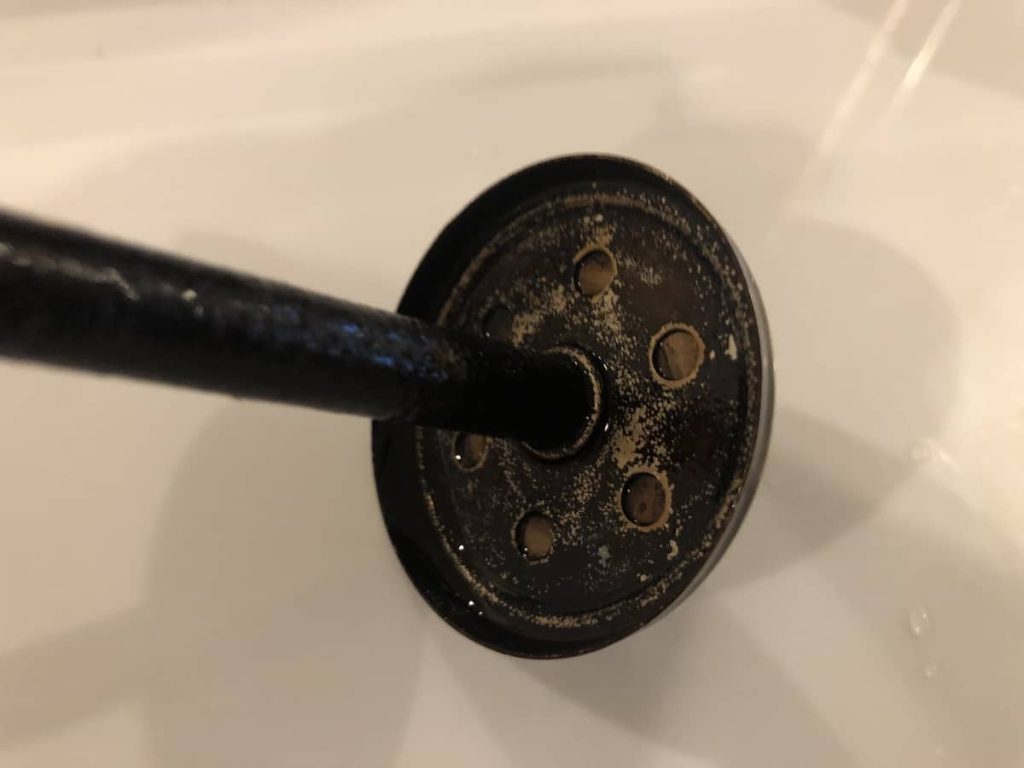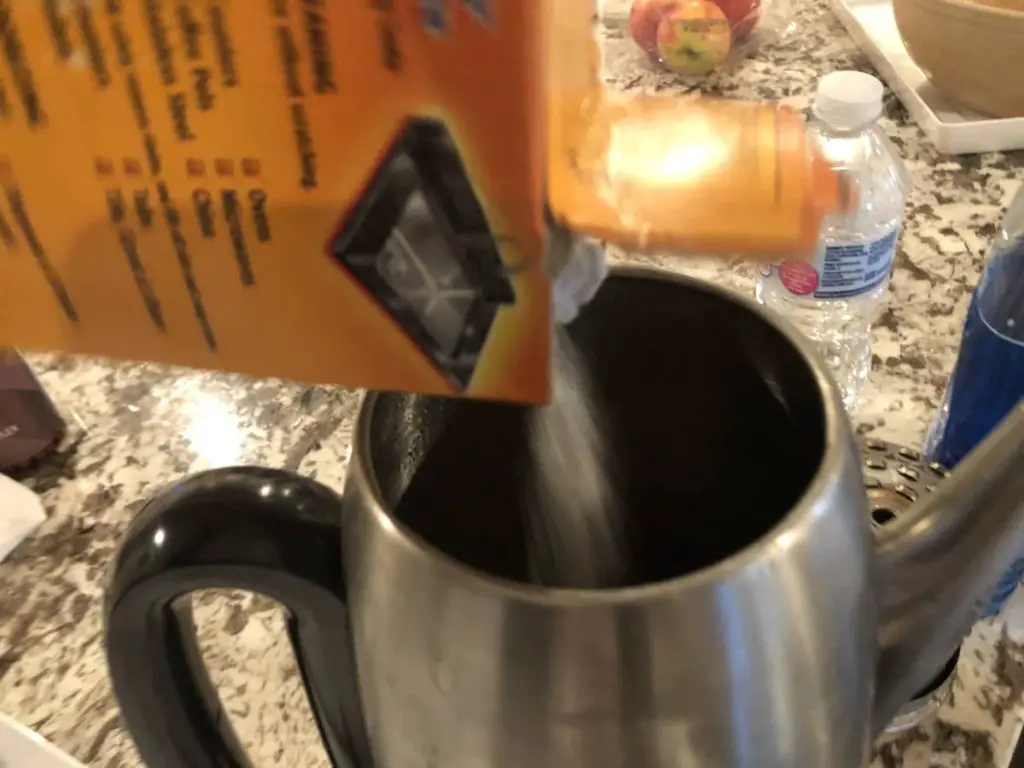For all that espresso machines and French press coffee makers are popular, percolators are still a familiar sight in homes and restaurants across the country. While the coffee they make is delicious, there’s a chance that they’ll occasionally start making coffee that’s weaker than you want it to be. And if you depend on a strong cup to wake up each morning, there’s nothing worse than finding that your coffee needs to be stronger.
The most common cause of a percolator making weak coffee is the pump stem having buildup that prevents the machine from pushing water up and over the coffee grounds. Other reasons for weak coffee include not using enough coffee, the wrong grind size, and damage to your heating mechanism.
If you’re looking for an answer for weak percolator coffee, read on. I’ll explore the reasons mentioned above in greater detail and give you some solutions to fixing the strength of your coffee. Once you’re done with this article, you’ll be back to enjoy a strong cuppa joe in the morning before you know it!

Reasons Your Percolator Is Making Weak Coffee
As mentioned above, there are several reasons that your percolator may be making weak coffee. However, in order to find a solution for these issues, you have to first understand them in greater detail.
#1 There Is Buildup in the Pump Stem
The pump stem is the long tube in the middle of your machine. It extends the length of the machine from the underside of the lid down to the base. This stem is what makes the percolator function – percolators work by pushing boiling water and air bubbles up the stem and over the coffee grounds held in the perforated basket.
If there’s debris buildup in and around the pump stem, the accumulated debris will prevent water from rising up the stem and being pushed over the coffee grounds, resulting in weaker coffee. This is especially a problem if there’s any buildup at the base of the stem.
This type of buildup results in popping sounds emanating from your percolator while the coffee is brewing.
If you do hear popping sounds combined with weak coffee, it’s a good sign that there’s an issue with debris buildup in and around the pump stem. Luckily, the solution is simple.
All you need to do is:
- Make a mixture of hot water and baking soda.
- Let the stem soak in this mixture for at least 30 minutes.
- Remove the stem and scrub the inside cleaning using a wire brush. You should also clean the outside thoroughly so you can get rid of oil residue, stuck coffee grounds, and other such stains.
- Shake the stem. If you hear a clicking sound from the metal plates at the bottom, that’s a sign that the buildup has been cleared.
Aside from cleaning the stem, you should also clean the rest of the percolator thoroughly and frequently. Debris stuck to the sides of the machine can work loose during the brewing process and migrate over to the stem, causing another buildup. Cleaning the whole percolator reduces the chance of this happening.
To clean your percolator, follow these simple steps:
Fill the percolator with a combination of water and at least three tablespoons of baking soda (I usually use more).

Turn on the machine and let the mixture inside it “brew” completely.
Once the brewing cycle is complete, let the water cool. Then, clean the sides of the machine with a brush while the water is still in the percolator – it makes dislodging debris easier.
Throw the water and rinse your machine.
Fill your machine with a mixture of half water and half white vinegar. Once again, let it run through the brewing process. Once the cycle is over, discard the mixture.
Start a final brewing cycle using only clean water. Do this twice. This will help rinse away any debris that’s still remaining and get rid of that vinegar taste.
Be prepared – you are going to be shocked at what comes out of your perculator when you do this. The amount of buildup on both the stem and inside the coffee pot always astonishes me!
#2 You Are Not Using Enough Coffee
It’s a simple equation – if you want your coffee to be strong, you need to add enough coffee grounds to your percolator before turning it on.
If your pump stem is clean and your coffee is still weak, make sure you’re adding enough grounds to the basket.
How much you should add depends on the size of your machine – however, I recommend adding a minimum of 2.5 cups of coffee grounds to a 40 cup percolator. Depending on the size of your machine, you can use this to calculate how much coffee you should add.
Source: Coletti Coffee
If you prefer your coffee stronger than what you get with this measurement, add more grounds to the basket.
#3 You’re Using Coffee Beans That Are the Wrong Ground Size
Another issue that you may be dealing with if your coffee isn’t as black as you’d like is the size of the coffee beans you’re adding to your percolator.
Coffee beans used in percolators should be coarsely ground beans that are ground at the highest setting (source). Grounds of this size are porous enough that the water can drip through them, allowing for a strong cup of coffee.
However, if the coffee beans you’re adding to your machine have been ground too fine, there’s a risk that they may slip through the holes in the basket (remember, the basket is porous), making your coffee grainy. Alternatively, they may simply not allow water to pass through them at all.
If you aren’t buying pre-ground coffee beans, consider using a coffee grinder with adjustments that allow for fine grinding like the SHARDOR Adjustable Coffee Grinder (link to Amazon). See the image below that shows the different grinding adjustments that this machine offers.
#4 There’s Damage to the Heating Mechanism of Your Electric Percolator
The heat applied during the brewing process is key to determining how strong your coffee will be. Strong coffee requires hot water – in fact, many people have to carefully control the temperature of their percolators to ensure their coffee isn’t overly strong.
Ideally, coffee should be brewed at between 195°F to 205°F (90.56°C – 96.11°C).
However, if there’s damage to the heating mechanism (also known as the heating element) of your electric percolator, it may not be boiling water to the temperatures coffee requires. Checking the heating element will require you to have a multimeter.
You can buy one in a hardware store or online. I personally recommend the AstroAI Digital Multimeter (link to Amazon) – it’s easy to use and extremely affordable.
The ideal reading should be between 100 and 300 ohms. If there’s a different reading, you’ll need to either replace the heating mechanism or buy a new percolator.
Final Thoughts
The most common reason for weak percolator coffee is a buildup of debris in and around the pump stem of the machine. If this is the case, you’ll need to thoroughly clean the stem and the rest of the machine before you use it again.
Other reasons that can cause percolator coffee to taste weak include using too few coffee grounds, using coffee beans that are the wrong grind size, and a problem with the heating mechanism of your machine.
Recommended Reading:
- Coffee Percolator Not Working: 8 Causes and What To Do
- How to Clean a Coffee Pot with Vinegar (And Why You Should Do It More Often)
- How to Clean Stainless Steel Coffee Pot – 5 Pro Tips
- How To Get Coffee Stains Out Of Your Carpet: Step By Step Guide
Declutter your home once and for all (Even if you have no time and don't know where to begin)! Learn More.



